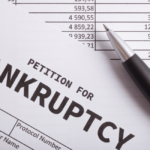Reasons to File Bankruptcy Now
There are many good reasons to plan for the filing of a bankruptcy. Some businesses, especially large corporations, do this almost routinely. For individuals, however, bankruptcy is anything but routine. To get the maximum benefit out of a case, it may be necessary to consider the timing.
Filing too soon or delaying bankruptcy filing can both lead to undesirable outcomes. For instance, certain income taxes can be discharged only if they are at least three years old. Calculating that three-year period can be a challenge, but filing too early can be disastrous if you’re stuck owing taxes that with a little planning (and patience) could have been discharged in a bankruptcy case.1
There are equally valid reasons for filing immediately, even if you must forgo the benefit of discharging certain debts, like taxes. Here are a few reasons why you may be better off filing for bankruptcy sooner rather than later.
Automatic Stays
Bankruptcy’s automatic stay can prevent repossession, foreclosure, garnishment, tax levy, eviction, or a lawsuit. Bankruptcy lawyers love to market their services based on bankruptcy’s ability to stop certain creditor actions from happening. It’s an injunction designed to prevent your creditors from taking action to collect their debts outside the bankruptcy case.
Note
If you know a creditor is considering taking action against you, filing a bankruptcy case now may stop the action or at least postpone it. For instance, once a creditor is notified of a bankruptcy case, it is prohibited from repossessing personal property, foreclosing on real property, conducting a tax levy, or filing or continuing many lawsuits.
An automatic stay also will stop garnishment of wages or a bank account, but will not usually work to get back wages or bank funds that were turned over to the creditor before the bankruptcy was filed. An automatic stay also may prevent eviction or the turn-off of utilities. There are restrictions, however:
- If your landlord already has obtained an order of possession from a court, the bankruptcy may not prevent the landlord from continuing the eviction process.
- A utility company will not be allowed to cut off service and may be required to turn service back on when a bankruptcy is filed, but you must act quickly to negotiate an arrangement with the utility, which usually involves providing a hefty deposit to cover the utility risk.2
Moving to Another State
In a bankruptcy case, you’re allowed to keep certain types of property as long as the property doesn’t exceed a certain dollar value. These are called exemptions or exempt property. The bankruptcy law allows states to decide what type of property and the value of the property their residents can claim exempt in a bankruptcy case.3
Some states are more generous than others. For instance, Texas allows an unlimited amount of value on a homestead property that doesn’t exceed an urban 10 acres or a rural 200 acres.4 Contrast that with Alabama, which allows a very limited exemption of $15,000 in equity in a homestead, an amount that can be doubled if both spouses file bankruptcy together.5
In the past, if you were to move from Alabama to Texas, you could take advantage of the generous Texas exemptions to protect your Alabama property. Congress changed the bankruptcy law to make that more difficult. If you move to a new state, the bankruptcy law requires you to apply the exemption standard from your previous state for the first 730 days you’re in your new state.6 Other restrictions might be relevant in your case, depending on where you live and where you might be moving. A qualified bankruptcy lawyer can help you determine the best course and the correct timing for your case.
Job Change
If you just got back to work after unemployment or started a higher paying job, you likely should file as soon as possible if you’re planning to do so.
Note
To qualify for a Chapter 7 bankruptcy, you have to show that your income over the previous six months doesn’t exceed a certain amount.
The Means Test to determine your average income takes into account your state’s median income, your income for the previous six months and many of your expenses, like the mortgage, car payment, utilities and other household expenses, medical costs, insurance, food, clothing, etc.78
If you’ve been unemployed, the longer you wait to file bankruptcy after you get a job, the higher your average monthly income will be. The average monthly income figure could grow too high to allow you to file a Chapter 7 case. The same is true if you get a raise or a higher paying job. Each month, your average monthly income for the previous six months will be higher than the month before.
Expected Future Income
Will you get a year-end bonus? Are you expecting to receive an inheritance when your Great Aunt Tilly passes away? If you expect to receive property soon, it may be best to file a bankruptcy case before you get it. After you receive it or even become entitled to it, the property has to be listed in your bankruptcy paperwork. To keep it, you also have to be able to apply an exemption to it. Otherwise, a trustee can take it, sell it, and use the proceeds to pay your debts. Call Firebaugh & Andrews for your free consultation 734-722-2999

 Previous Post
Previous Post Next Post
Next Post